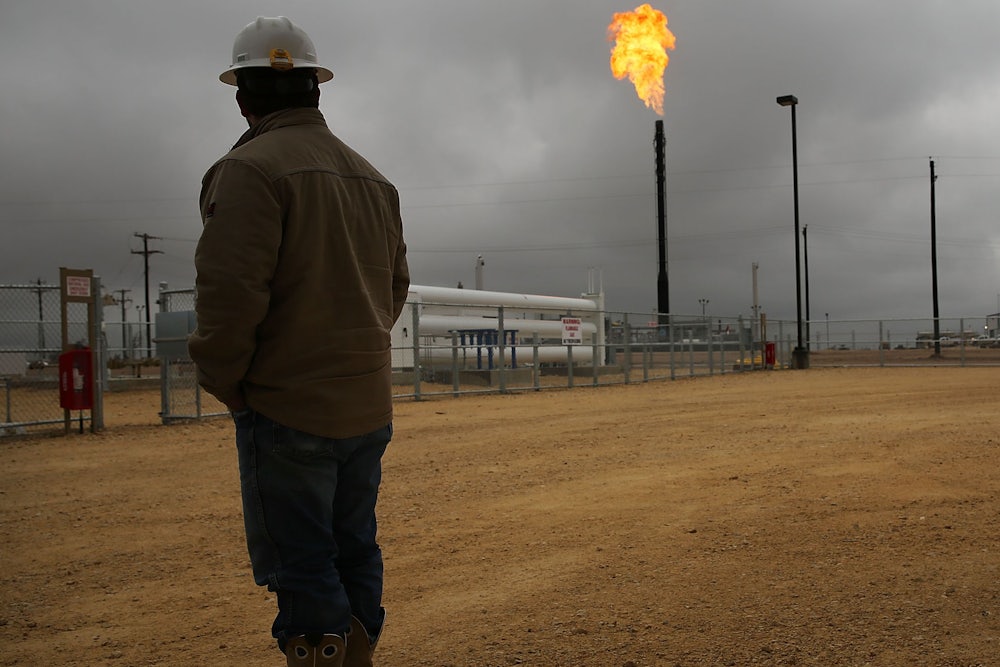It’s hard to lead the charge against the global consumption of fossil fuels while making money off the sale of them.
Perhaps in recognition of this conundrum, the U.S. Bureau of Land Management, which manages some 245 million acres of public land, has announced it will postpone an oil and gas lease auction scheduled for December 10 until March 17, 2016. The leases for sale include nine parcels of land in Arkansas and Michigan, totaling 587 acres, eligible for fossil fuel exploration. That means the federal government won’t be selling off land for oil or gas development just as the COP21 climate talks in Paris approach their dramatic conclusion.
The planned sale had been drawing heat from climate activists, who are rallying behind the “keep it in the ground” philosophy that to prevent the worst effects of climate change, the world needs to leave most of fossil fuel reserves untapped. President Barack Obama articulated that concept in his rationale for rejecting the Keystone XL pipeline in November:
Ultimately, if we’re gonna prevent large parts of this Earth from becoming not only inhospitable but uninhabitable in our lifetimes, we’re gonna have to keep some fossil fuels in the ground rather than burn them and release more dangerous pollution into the sky.
That said, the sale will go ahead a few months after the delegates return home from Paris. If Obama rejected the Keystone XL Pipeline for the stated reasons, why go ahead with federal mineral rights leases? One difference is the money from these routine drilling rights sales goes to the government, not to a Canadian energy company. Another possibility is that the goal isn’t really to stop extracting fossil fuels.
“Leaving the fossil fuels in the ground is laughable,” says Stanford economics professor Frank Wolak, who directs the Program on Energy and Sustainable Development. He notes that oil and gas are extremely inexpensive sources of energy that are perfectly legal to harvest and consume. The problem for the atmosphere isn’t that fossil fuels get harvested at all, it’s the speed with which they are consumed.
“If you’re really serious about reducing greenhouse gas emissions,” says Wolak, “they need to be priced.”
Climate change activists have been pushing to divest from companies holding fossil fuel assets as a way of shifting investment toward cleaner technology. Yet the federal government, which has probably spent more than anyone supporting clean tech with tax breaks and incentives, also owns 700 million acres of underground mineral estate. Activists have already called for Obama to leave any unleased fossil fuels in the ground. His intentions for those fossil fuel assets may well become a primary focus for the environmental movement once COP21 wraps up.
This story was originally published by the Atlantic’s CityLab and is reproduced here as part of our Climate Desk collaboration.
